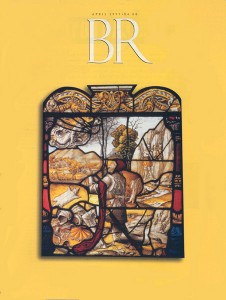The Gospel Truth?
Read the Bible critically
Ben Witherington’s response to my essay is helpful in that it does more than just find fault: It begins to grapple with some fundamental issues.
My crucial claim is that a large majority of critical scholars share the Jesus Seminar’s basic view that the Gospels are a complex blend of fact and fiction. Witherington does not dispute this, though he wants to put the matter in slightly different words. The other issues he and I discuss are minor compared to this one, and our agreement on it is most significant. Though he agrees with me in principle, he is evasive when it comes to details. The only example he gives of an inauthentic gospel saying is a secondary version (Luke’s reworking of Mark) of the centurion’s exclamation.a He specifically declines to identify any saying specifically attributed to Jesus as inauthentic. In light of my inference that Witherington’s quest for the historical Jesus “does not involve questioning the historical reliability of the gospel material,” we can only speculate on the motives for his silence.
Witherington also agrees that the Gospels contain fiction, but the only items he so identifies are the parables. That parables are fictions is an innocuous admission that sidesteps the real historical question: How many of these literary fictions are actually from Jesus and how many from the church? If evangelical scholars like Witherington were to answer that question and give reasons for their answers, much would be clarified. But until we get such “grocery lists” the discussion cannot really go forward.
Already a library member? Log in here.
Institution user? Log in with your IP address.

